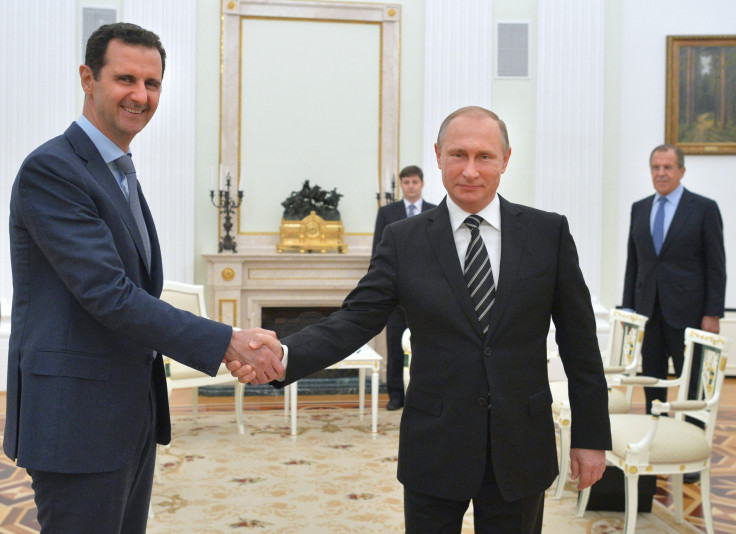Russian President Putin To Meet With Former Soviet Countries To Combat Islamic State Group Fighters

Russian President Vladimir Putin was set to meet with special services from the Commonwealth of Independent States, a diplomatic alliance of former Soviet countries, to discuss ways of preventing Syrian-trained Russians from returning after the war and fighting in their home countries. The announcement of the meeting Wednesday came as Putin continued to maintain a visible presence in Syria, conducting frequent airstrikes during the past month.
Many of the former Soviet republics, including regions of Russia and Kazakhstan, have faced a threat of Islamic extremism for nearly three decades. A failed civil war in Chechnya, the southeast region of present-day Russia, was waged in part by Islamic extremists in the 1990s, with help from foreign fighters coming from the Middle East.
Since that war ended and Chechnya became a semi-autonomous region within Russia, the territory has continued to serve as a breeding ground for Islamic extremism. The two brothers that carried out the 2013 Boston marathon bombings -- that killed three and wounded 260 -- were Chechens.
Syria poses challenges for Putin, says @Bridget_Kendall https://t.co/PKAKn0z8dx pic.twitter.com/T67QL1E7TX
— BBC News (World) (@BBCWorld) October 26, 2015An escalating civil war in Syria has sent more than 20,000 foreign fighters to join rebel groups in the region, including the Islamic terrorist group known as the Islamic State or ISIS. An estimated 1,700 Russian-born fighters have joined ISIS or other rebel groups in the region since the civil war in Syria began in 2011, making it one of the top five foreign fighter-producing countries in the world, the Telegraph reported in August.
Putin's planned meeting with special forces from Russia's neighbors was in an effort to prevent foreign fighters from returning home and attempting to wage war in Russia and the other former Soviet republics, a press spokesperson for the Kremlin said Wednesday.
The allies were set to discuss "the key aspects of anti-terrorism activity on the territory of [Commonwealth of Independent States] countries and issues of countering terrorist organizations and groups that have been trained in Syria and Afghanistan," said one Kremlin spokesperson, as reported by Tass, a state-owned news agency.
© Copyright IBTimes 2025. All rights reserved.






















